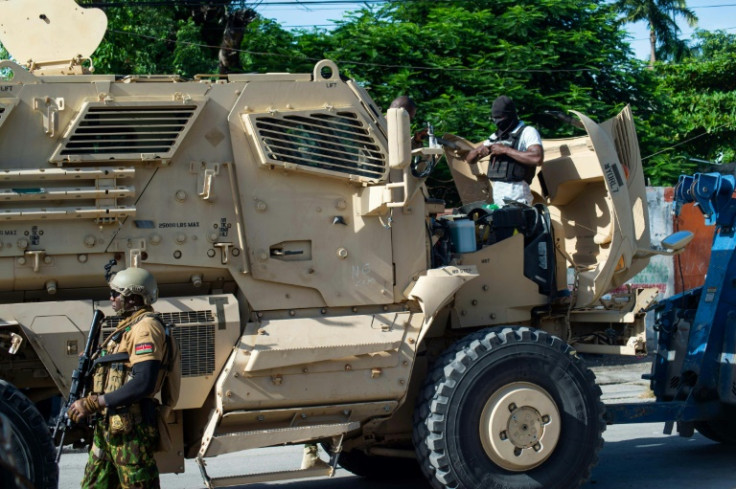
Gang violence continues to expand in Haiti despite the arrival of a Kenyan-led international force aimed at helping the government retake control.
Recent events in the rural town of Ganthier, located 28 miles from the capital, Port-au-Prince and just 14 from the Dominican Republic, illustrates the challenges the forces still face in their increased efforts.
Ganthier was one of the few places where gangs were still unable to get a foothold, as residents fought alongside local police against the 400 Mawozo, one of the country's most notorious criminal groups and even responsible for kidnapping U.S. missionaries.
As the town faced imminent gang takeover, Haitian police, assisted by Kenyan officers from the Multinational Security Support mission, initiated a counter-offensive. This marked the first significant effort to dismantle a gang during an active attack. The operation followed weeks of planning, joint patrols, and familiarization exercises in Port-au-Prince.
The response included two armored vehicles, with a third stationed nearby in Fond-Parisien, a neighboring community. Upon arrival, the officers found a destroyed police station, an evacuated city, and gang members in retreat. Earlier, the town's mayor, Jean Viloner Victor, had issued a stark warning: without significant reinforcement within 72 hours, Ganthier would fall to gang control.
Control of the town would allow gangs to extend their reach to the Malpasse border crossing with the Dominican Republic, facilitating the smuggling of weapons, ammunition, and other contraband.
Reinforcements arrived late Thursday, not by helicopter as expected, but by road. The Multinational Security Support mission, which started arriving in Haiti a month ago, is equipped with armored vehicles, radios, high-caliber weapons, and drones but lacks air or sea assets.
The absence of helicopters and other aerial support is a significant challenge, security experts and local officials told the Miami Herald. Réginald Delva, a former public security official, emphasized the difficulty of conducting operations without air support in Haiti's rugged terrain. The gangs are adept at hiding, making aerial support crucial for effective action.
U.S. Assistant Secretary of State for the Western Hemisphere Brian Nichols acknowledged the need for more resources, including aviation, which is expensive and requires international contributions. The U.S. is the largest donor to the security mission, providing substantial funding and equipment, but Nichols stressed that additional financial support is necessary to sustain the mission.
© 2025 Latin Times. All rights reserved. Do not reproduce without permission.




